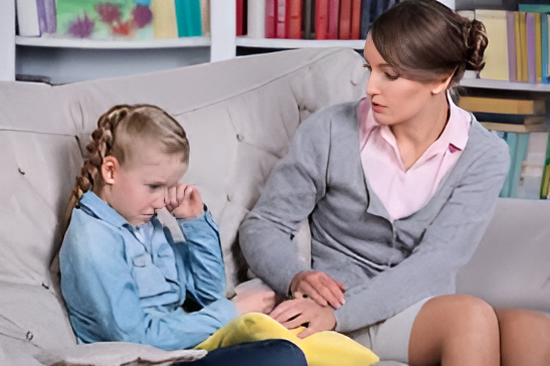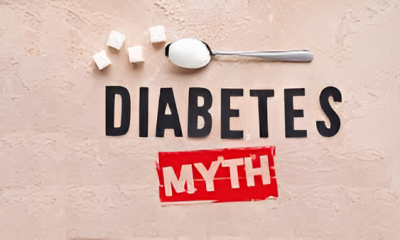Mental Health
Children Mental Health: Common Struggles and What to Watch For

Mental health is equally crucial as physical health—particularly in developing children. Children feel things they might not always be able to explain. At times, those feelings become issues that impact their behavior, learning, and daily functioning. If adults recognize the warning signs early on, they can provide assistance, guidance, and reassurance. Let’s look at the most prevalent mental health difficulties that children face and how to intervene.
Anxiety Disorders in Children
Kids also worry; however, when fear starts to get in the way of life, then it is a disorder. An anxious kid fears to be alone or something new or school. A tearful child, clingy child who keeps their parent stuck or complaining of bellyaches, is a worried kid. With time, anxiety can destroy sleep and school work as well as friends. Parents should remain calm, listen patiently, and visit a doctor if symptoms continue.
Depression in Children
Although it may seem rare, children can also experience profound sadness. Depression causes kids to lose interest in things they once enjoyed. Some kids may sleep too much, eat too little, or feel tired all the time. Others might become angry or lose interest in playing. It’s not just “a bad mood”—it often lasts for weeks. Early support and professional care make a big difference.
ADHD (Attention-Deficit/Hyperactivity Disorder)
ADHD makes it very difficult for children to concentrate, sit still, or comply with directions. Some of them tend to dream too much while others act without thinking. Such behaviors may attract trouble with friends and in school. In actual sense, ADHD is not because of bad parenting or laziness. Children diagnosed with ADHD can easily thrive in school and at home if provided with structure, encouragement, and possibly their treatment.
Behavioral Problems and Anger Issues
All children become angry at times. But But regular tantrums or resistance could be a sign of something more. Children will shout, hit, or disobey. Their relationships with teachers, peers, and loved ones are harmed by such behavior. Rather than punishment, parents can search for the root cause. Counseling, positive discipline, and patience most often work best.
Learning Disorders That Affect Confidence
Some kids struggle with reading, writing, or math, even with effort. These issues may be signs of a learning disorder, such as dyslexia. Without support, kids might feel “stupid” and lose confidence. That’s why early testing and special learning tools are essential. Encouragement from parents and teachers helps kids regain their confidence.
Autism Spectrum Disorders
Autism affects how children communicate, behave, and connect with others. Some children speak less, avoid eye contact, or become intensely focused on specific interests. Others may struggle to understand social rules. While autism is a lifelong condition, early therapy and support can significantly improve communication and life skills. Every child on the spectrum is unique and needs different care.
Social Struggles and Loneliness
Friend. Friendship is what emotional health is all about. But some kids struggle with connecting or belonging. Loneliness can result from bullying, shyness, or switching schools. Gradually, this can damage their self-esteem. Intervene by modeling empathy, promoting group participation, and discussing feelings openly. At other times, all they want is someone to see them and care about them.
Effects of Stress and Family Conflict
Significant changes—like divorce, loss, or a move—can be stressful. Children may not express their upset directly, but they may show it in other ways. They might withdraw, act out, or have trouble sleeping. Calm routines and honest talks help kids feel safe. When stress lasts too long, though, it can lead to anxiety or depression. In that case, professional support is key.
Screen Time and Mental Health
Kids today spend hours on screens. While some screen time is okay, too much can hurt mental health. It may cause sleep problems, low mood, and less physical activity. Social media can also affect self-esteem. Parents should guide their children in developing healthy screen habits and encourage regular breaks for play, rest, and face-to-face interaction.
Final Thoughts: Help Kids Feel Understood
Mental health problems just don’t mean weakness. Most are common and treatable. The best thing adults can do is listen, notice change, and offer steady support. Whether it’s talking, therapy, or extra help in school, early care makes healing much easier. Kids feel stronger and more confident when they know they’re understood.

-

 Body and Health2 weeks ago
Body and Health2 weeks agoPregnancy Tips for a Healthy & Happy Journey
-

 Healthy food1 month ago
Healthy food1 month agoHealthy Vegan: Fact vs. Fiction
-

 Healthy food4 weeks ago
Healthy food4 weeks agoChia Seeds: Tiny Grains With Giant Power
-

 Healthy food3 weeks ago
Healthy food3 weeks agoFood to Fight Depression and Anxiety: What to Eat to Feel Better
-

 Mind & Soul4 weeks ago
Mind & Soul4 weeks agoThe One-Minute Calm: How Breathing Can Change Everything!
-

 Mind & Soul3 weeks ago
Mind & Soul3 weeks agoUnderstanding Anxiety: A Guide to the Different Types
-

 Personal Development3 weeks ago
Personal Development3 weeks agoSchedule Overload: How to Handle a Busy Life Like a Pro
-

 Body and Health4 weeks ago
Body and Health4 weeks ago8 Diabetes Myths You Shouldn’t Believe



















